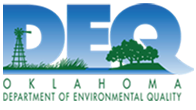
| GCSA Program Background |
When EPA’s Phase II stormwater rules were finalized in late 1999, INCOG member governments affected by this new permit program requested INCOG’s assistance. INCOG began a regional technical resource program to address certain stormwater permit requirements, mainly dealing with public education and employee training, and to provide technical assistance to its Green Country Stormwater Alliance (GCSA) members.
 |
As OKR04 permits began to be issued in 2006, the GCSA membership grew beyond just INCOG’s regular municipal members to include additional cities in Northeast Oklahoma. INCOG continues to serve about half of the municipal stormwater permittees in Oklahoma as GCSA members. Over the years, funding for INCOG’s GCSA program has shifted from EPA water quality grant to being wholly supported by annual GCSA membership dues. |
| The Oklahoma Department of Environmental Quality (DEQ) is the Permitting Authority (PA) over the Phase I and II stormwater permit programs in Oklahoma. Each of the Phase II stormwater permittees must develop a Stormwater Management Program (SWMP) document that lists all of the permittee’s Best Management Practices (BMPs) that will be implemented to address EPA’s six Minimum Control Measures (MCMs); MCMs are categories of action items that must be implemented to meet permit requirements. |  |
The six MCMs in the EPA Rules and the 2015 OKR04 Permit are:
- Public education and outreach;
- Public participation and involvement;
- Illicit discharge detection and elimination;
- Construction site runoff control;
- Post-construction runoff control; and
- Pollution prevention and good housekeeping.
Each municipal stormwater permittee must also submit an Annual Report to DEQ that shows the accomplishments of the preceding year. Each time the state’s general stormwater permits are renewed, permittees can expect new and updated permit requirements that enhance program effectiveness and conform to EPA mandates.
